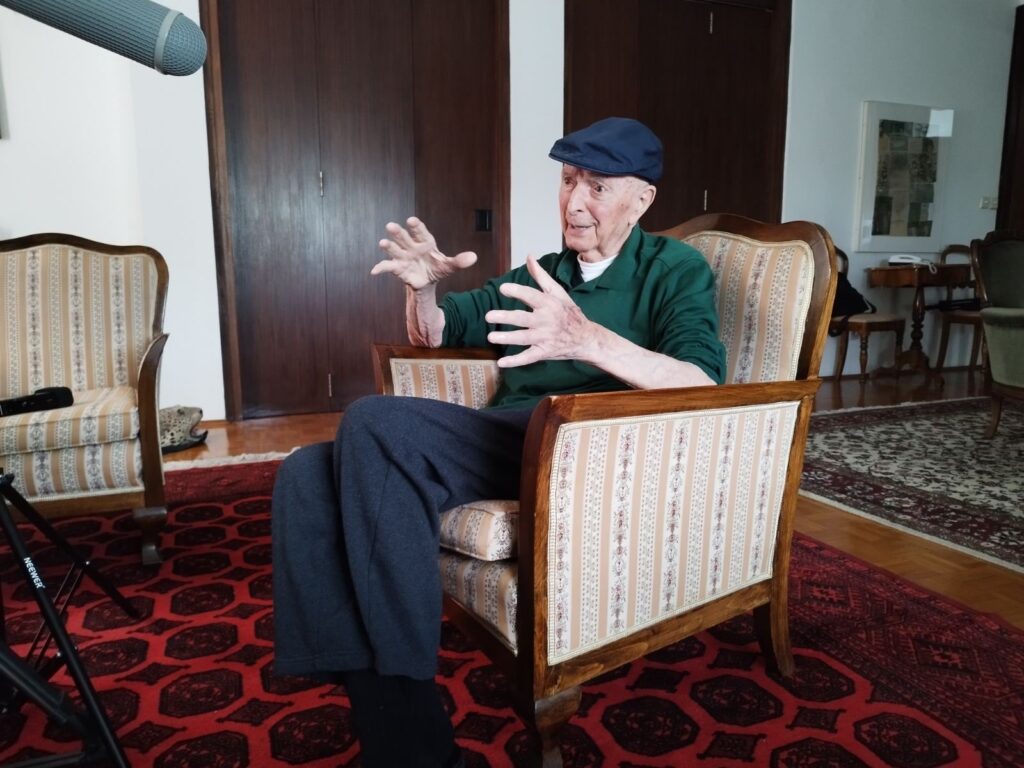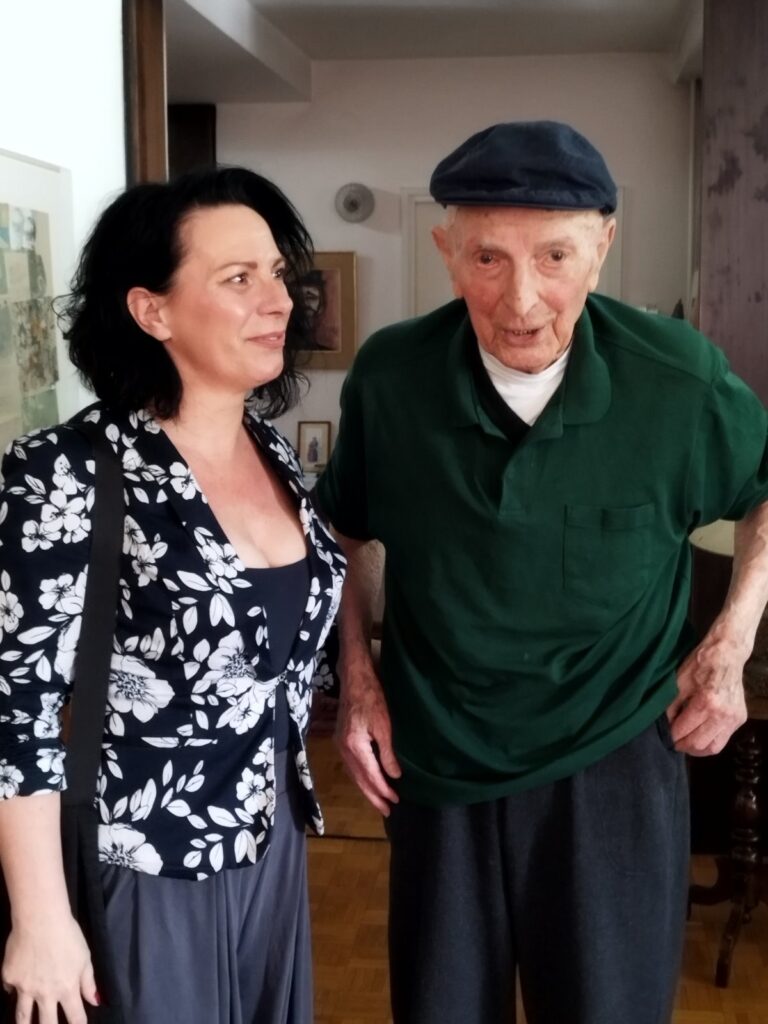Petar Matić Dule
The Last People’s Hero of Yugoslavia
1920-2024
 Petar Matić Dule, the commander of the Srem Partisan Detachment and later the 6th Vojvodina Brigade, as well as a lieutenant general of the Yugoslav People’s Army (JNA), passed away in October at the age of 104. He died in the same apartment where, just a year earlier, I had the immense privilege, both professionally and personally, to conduct what turned out to be his final interview. For me, it was also the first interview in my decades-long journalism career where I felt both nervousness and a profound sense of “awe and reverence.”
Petar Matić Dule, the commander of the Srem Partisan Detachment and later the 6th Vojvodina Brigade, as well as a lieutenant general of the Yugoslav People’s Army (JNA), passed away in October at the age of 104. He died in the same apartment where, just a year earlier, I had the immense privilege, both professionally and personally, to conduct what turned out to be his final interview. For me, it was also the first interview in my decades-long journalism career where I felt both nervousness and a profound sense of “awe and reverence.”
Although he came from a relatively well-off farming family in his hometown of Irig, Matić was deeply affected by the social inequality and injustice he witnessed daily in Srem.
“Thanks to students and older members of the Communist Party of Yugoslavia (KPJ), I gained access to propaganda materials and literature, which not only informed me about world events but also introduced me to the ideas and goals of communists. These ideas were easier to explain in Srem, where people were literate and acutely aware of the injustices of high taxes and class divisions,” he said, adding, “At that time, Srem was largely opposition-minded precisely because of these social injustices and class divisions.”
After joining the KPJ at the age of just under 20, he quickly became the secretary of the local committee. Upon joining the partisans, he rose to become the commander of the Srem Partisan Detachment and later the commander of the 6th Vojvodina Shock Brigade. He was first wounded in the summer of 1942 during the first Fruška Gora offensive, where he led two detachments—comprising just 150 Danube and 250 Fruška Gora partisans—in breaking through an encirclement of “nearly twenty thousand German, Ustaše, and Domobrani units.”
“I was shot in the leg, near the joint. The bullet hit me at close range, so the wound was scorched from the heat of the bullet, which actually turned out to be fortunate because it healed quickly. Leaning on my rifle, I managed to reach a vineyard and rolled back into the forest, saving myself,” Commander Dule recounted with a smile. He added that his unit, despite the overwhelming disparity in numbers, managed to break through the encirclement and disappear into the Fruška Gora forests.
In 1943, through the same forests and enemy lines, 1,100 Vojvodina volunteers—with over 100 wagons loaded with food, clothing, and medical supplies—managed to break through in an operation immortalized by Veljko Bulajić’s famous film The Great Transport. This operation was commanded by none other than my interviewee.
“These people walked 300 kilometres from Fruška Gora to the Bosnian forests. The column was escorted by a brigade and two battalions of the Fruška Gora Detachment. Among them were Vojvodina farmers, mostly older men, with whom I had agreed that after delivering their supplies with their wagons, they would return to Vojvodina. However, since most of them had sons and daughters in the partisans, none of them returned. Instead, they stayed to fight. They remained with their children, donating their horses to the partisans, which for any Vojvodinian, especially at that time, was a great treasure,” Matić recalled.
 Even after the war, Matić passionately advocated for the rights of Vojvodina and its people. He held various military positions, and after retiring in the early 1980s, he became a member of the Presidency of the Central Committee of the League of Communists of Yugoslavia and later the head of the Federal SUBNOR (Union of Veterans of the National Liberation War). He held this position until 1988 when he clashed with Milošević’s war-mongering policies. For Matić, the question of Vojvodina’s political autonomy was equally important during Tito’s time and the dark days of Milošević, right up to his final days.
Even after the war, Matić passionately advocated for the rights of Vojvodina and its people. He held various military positions, and after retiring in the early 1980s, he became a member of the Presidency of the Central Committee of the League of Communists of Yugoslavia and later the head of the Federal SUBNOR (Union of Veterans of the National Liberation War). He held this position until 1988 when he clashed with Milošević’s war-mongering policies. For Matić, the question of Vojvodina’s political autonomy was equally important during Tito’s time and the dark days of Milošević, right up to his final days.
“We didn’t fight and die for something abstract! Almost every government’s interest was to turn Vojvodina into some kind of food warehouse for the entire country. We only demanded the right to develop normally and to be equal. They never understood us, never. Because if they had, they would have had to acknowledge our political subjectivity,” Matić said.
Regarding the disgraceful historical revisionism in which Serbia renounces its anti-fascist past, Matić succinctly (and accurately) concluded:
“Today, those who lost the war have won, those who are not anti-fascists. The stage is given to those who didn’t even fight and who are utterly incapable in any statesmanlike sense. They’re just a bunch of scoundrels.”
Hasta siempre, Comandante!
by Ana Lalić Hegediš